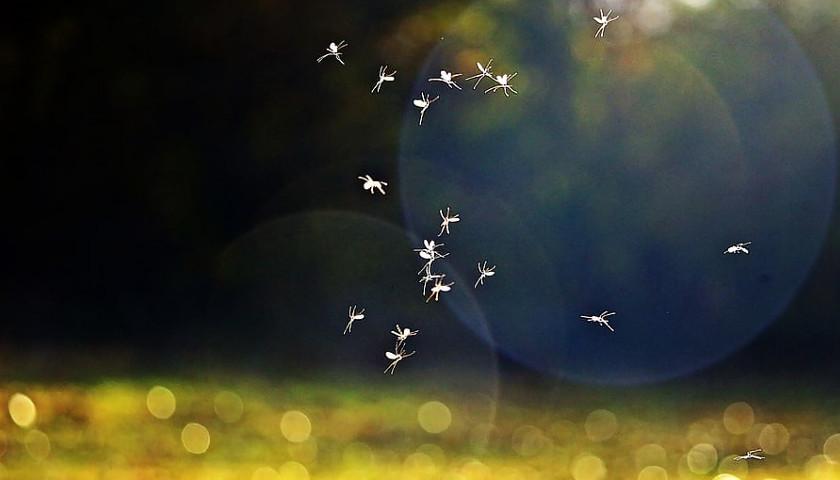The Metro Nashville Public Health Department recently announced that multiple batches of mosquitoes infected with West Nile virus have been collected across Davidson County.
The widespread virus was detected through the Public Health Department’s Pest Management Division. The division routinely traps mosquitoes at 40 surveillance sites across Nashville and sends them for testing at the Tennessee Department of Health’s lab.
Since May of this year, 30 monitored sites have returned at least one pool of mosquitoes positive with West Nile virus, the Public Health Department announced last week.
Despite the widespread detection, no local human cases have been reported so far.
In addition to setting additional traps, monitoring areas of standing water, and applying larvicide if mosquito larvae are present, the Public Health Department’s Pest Management Division will send fliers to residences in the areas where the infected mosquitoes were trapped with “steps to protect against biting mosquitoes and to take steps to reduce standing water where mosquitoes can lay eggs.”
Some tips to help reduce mosquito breeding areas, according to the Public Health Department, include
- Reducing or eliminating all standing water in outdoor children’s toys, bird baths, clogged gutters, tires, flowerpots, trashcans, and wheelbarrows;
- Aerating ornamental pools or stocking them with Gambusia fish, which feed on mosquito larvae;
- Applying mosquito dunks (larvicide) in standing water areas; and
- Cutting back overgrown vegetation, where mosquitoes can easily hide.
Health officials also recommend taking the following personal protective measures to help prevent mosquito bites:
- Limiting time outdoors at dusk and nighttime hours when mosquitoes are most active;
- Wearing a mosquito repellent approved for use by the CDC, including products that contain DEET, Picaridin, and Oil of Lemon Eucalyptus;
- Wearing shoes, socks, long sleeve shirts and pants when outdoors during dusk to dawn when mosquitoes are most prevalent. Clothing should be light colored and made of tightly woven materials to keep mosquitoes away from the skin. Pant legs should be tucked into shoes or socks, and collars should be buttoned; and
- Making sure windows and doors have screens in good repair.
West Nile virus is one of several mosquito-borne viruses in the nation that can infect people, the Tennessee Department of Health says.
There have been 126 West Nile virus disease cases in 2023 across 22 states reported so far this year, according to the Centers for Disease Control and Prevention (CDC), with 2 cases reported from Tennessee.
“The vast majority of people that become infected with the West Nile virus have no illness or experience only a mild flu-like illness that includes fever, headache and body aches lasting only a few days. Some persons may also have a mild rash or swollen lymph glands,” the Tennessee Department of Health writes on its website. “Less than one percent of those infected may develop meningitis or encephalitis, the most severe forms of the disease, which occurs primarily in persons over 50 years of age.”
– – –
Kaitlin Housler is a reporter at The Tennessee Star and The Star News Network.
Photo “Mosquitoes at Dusk” by PXFuel.






“Some tips to help reduce mosquito breeding areas”
Exterminate the population control eugenicist that is releasing 30 million gmo mosquitos into 11 countries every week….even if he bought and paid for your pitiful excuse for education Common Core “state” standards and gives millions to Jamie Woodson and Bill Frist. Stop your health department from parroting the WHO/Gates Foundation talking points to promote the next Deathvax you need because of “climate change”. Never take health advice from people who believe the world population needs to be reduced by 80%.
Who cares what the “Health Department” says?? What do the legislators who are also insurance salesmen have to say, their “expert” scientific opinions are so much more valuable…..
Maybe they should also put out a warning about the lead poisoning that occurs with the shootings in Nashville that happen virtually every night.